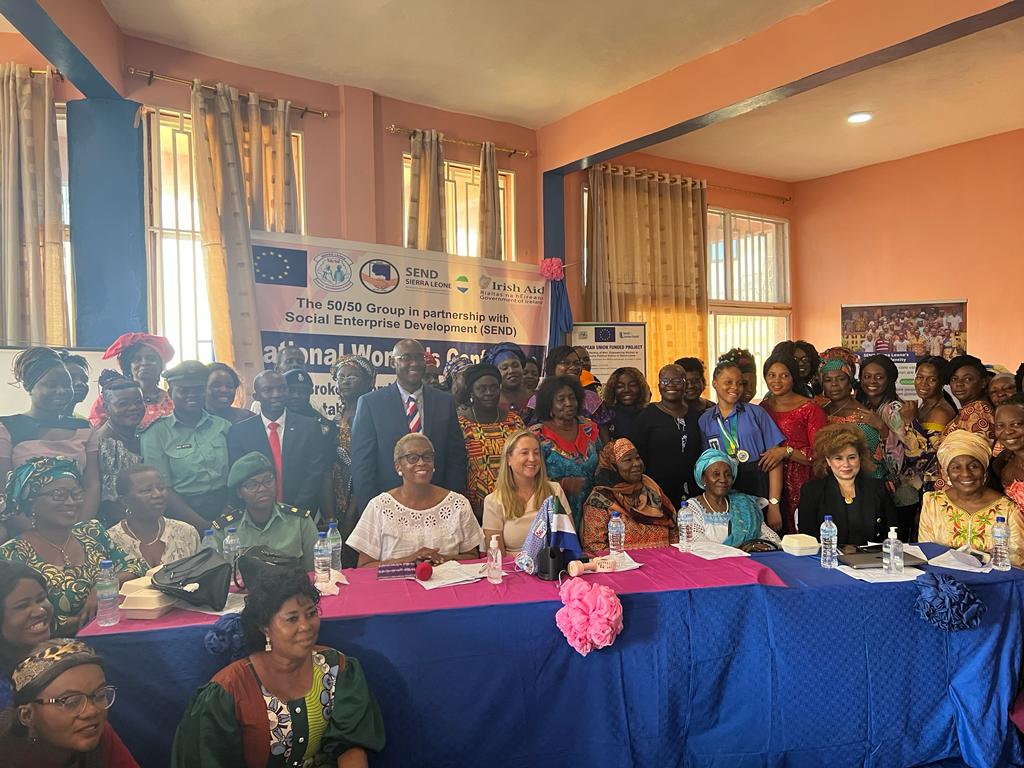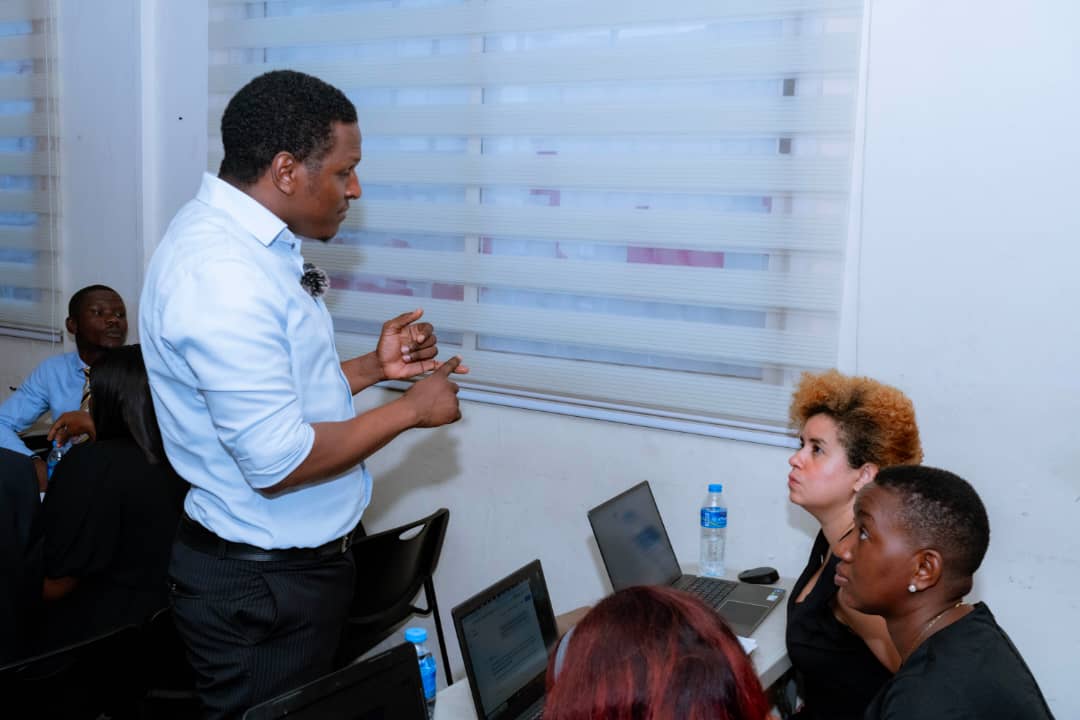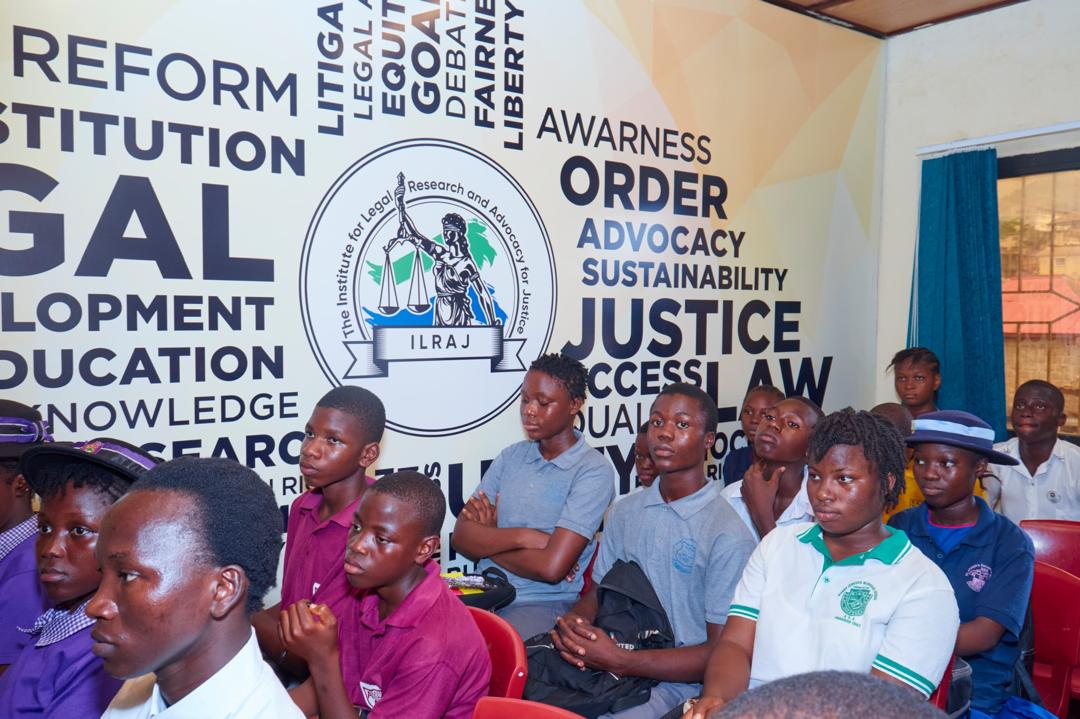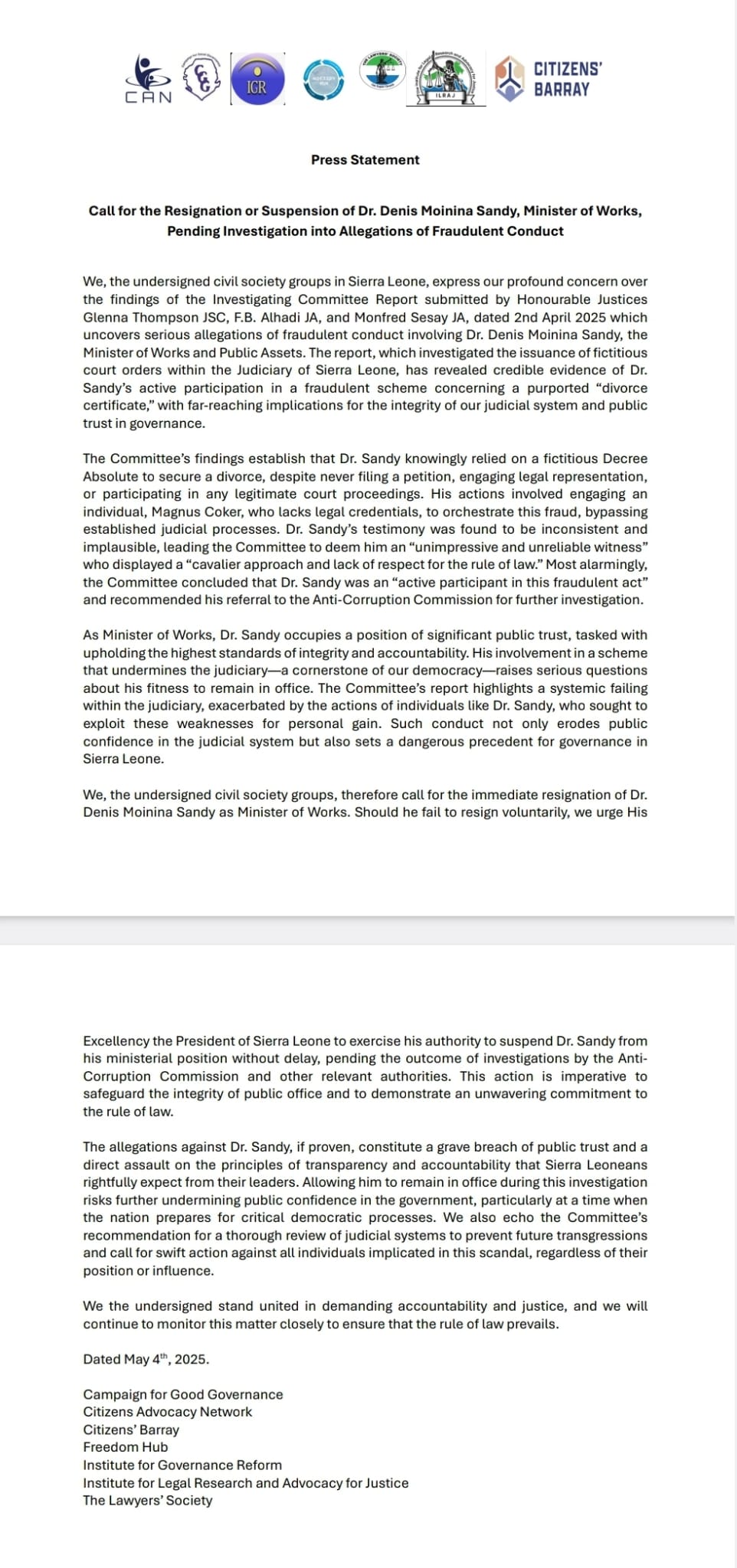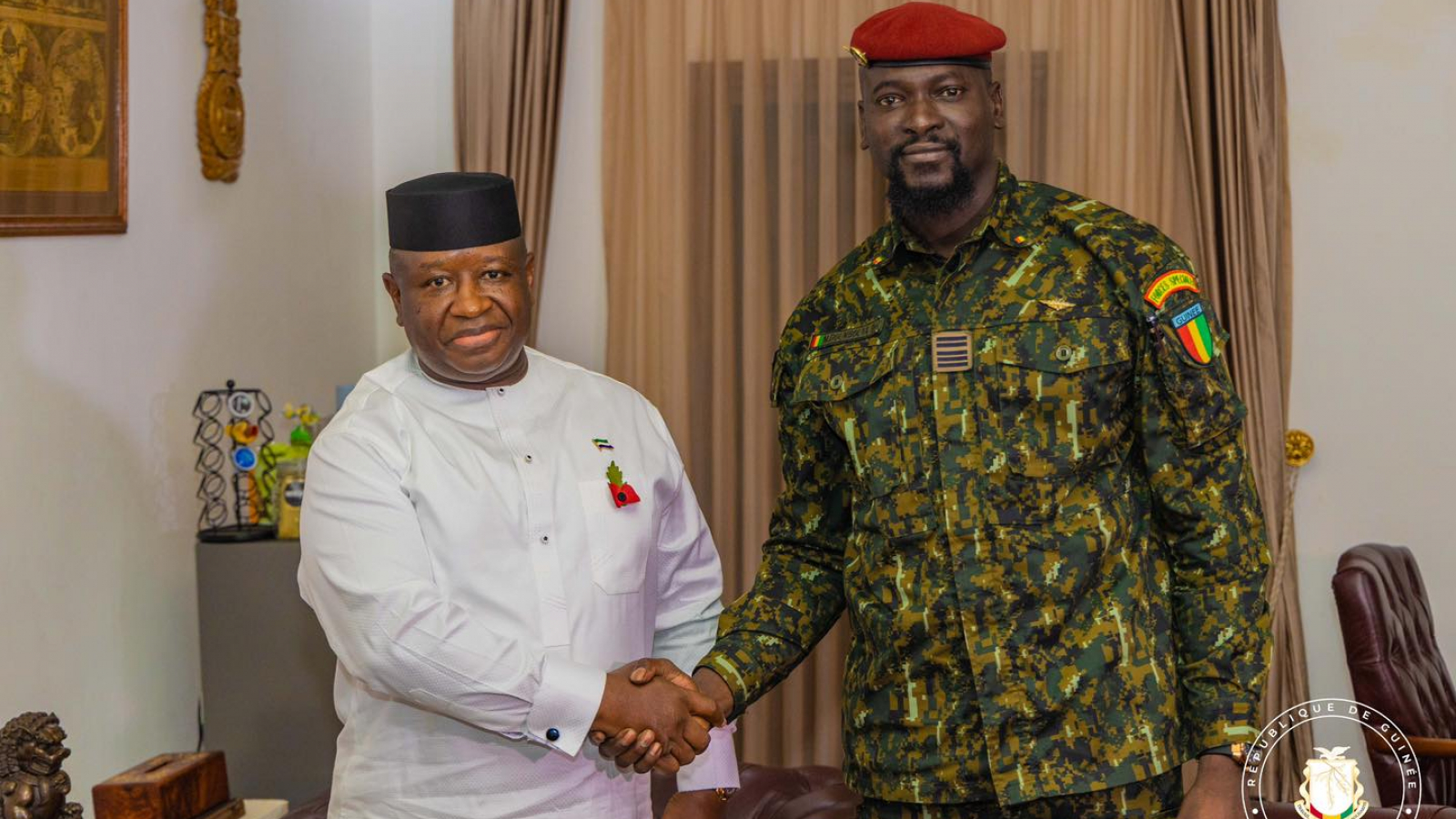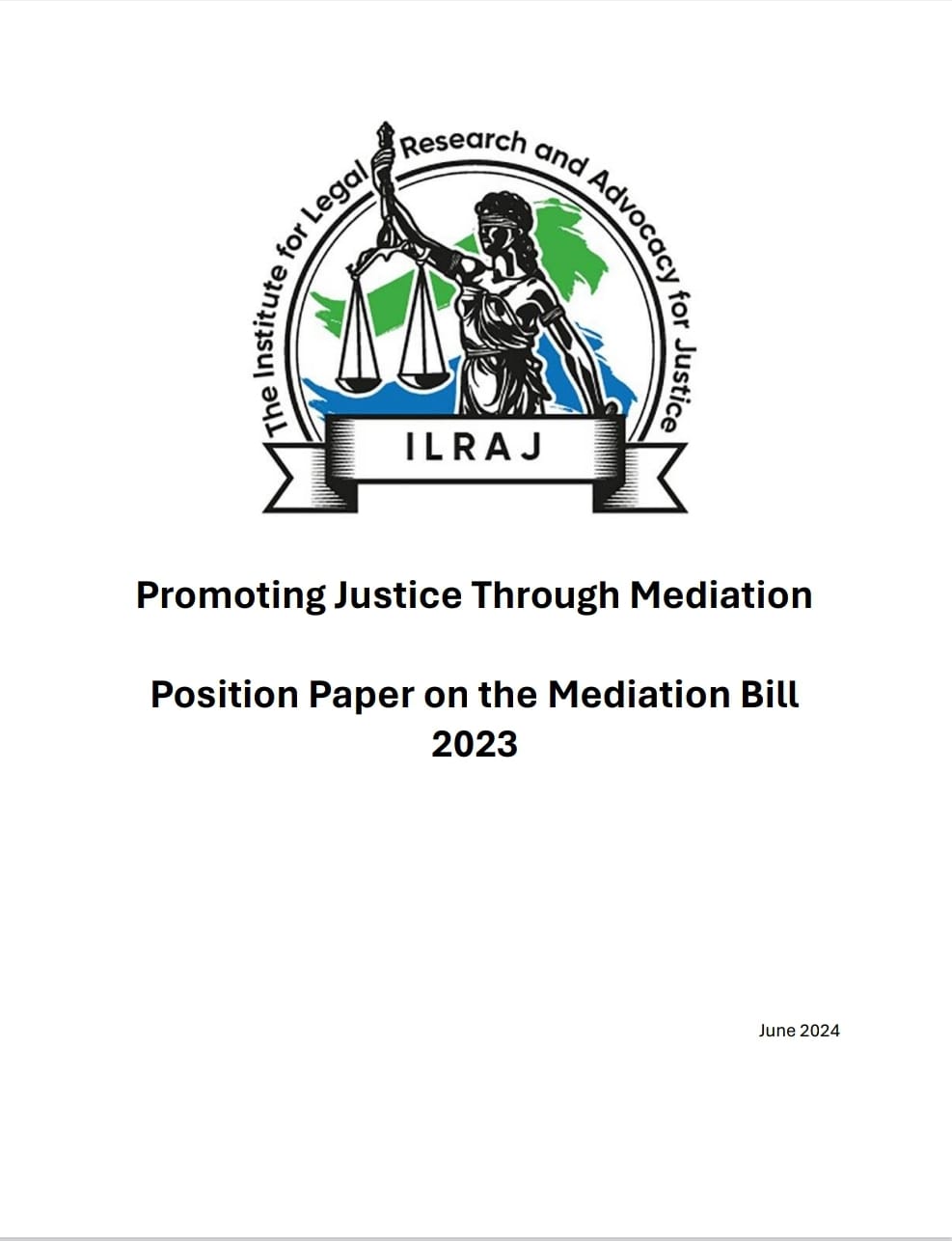Speech by Basita Michael Esq at the Fifty-Fifty Group Conference on March 2, 2023.
Distinguished guests, friends and colleagues, greetings,
I feel deeply honoured to be here among all of you today, and I am delighted to see so many esteemed mentors, colleagues, and friends in attendance.
I would like to express my sincere gratitude for the singular honour of being invited to serve as your keynote speaker. Your decision humbles me, and I hope to deliver a discourse that will stimulate your intellect and provoke your thoughts.
- Introduction
At the outset, I want to express my appreciation for the conference’s theme, “Beyond Broken Promises: Making 2023 the year of Accountability for Women in Sierra Leone.” The theme holds a critical significance, and I am honoured to address such a crucial topic.
I aim to evaluate the current state of women’s rights in Sierra Leone and offer practical recommendations for making 2023 the year of accountability for women.
We cannot speak of the broken promises without highlighting the promises that have been made.
- The Promises
Universal Declaration of Human Rights
Decades ago, we signed the Universal Declaration of Human Rights. This document outlines the basic human rights and fundamental freedoms inherent to all human beings, including women. Overall, the UDHR promises women the same human rights as men, including the right to equality, freedom from discrimination, education, work, political participation, and the right to marry and start a family.
International Human Rights Instruments
Other International human rights instruments promise women the protection and promotion of their human rights and fundamental freedoms on equal terms with men. Some of the key international human rights instruments that explicitly address women’s rights include: The Convention on the Elimination of All Forms of Discrimination Against Women (CEDAW), The Beijing Declaration and Platform for Action, The International Covenant on Civil and Political Rights (ICCPR), The Protocol to the African Charter on Human and Peoples’ Rights on the Rights of Women in Africa, better known as the Maputo Protocol, recognizes a wide range of women’s rights, including the right to dignity, education, health, reproductive and sexual rights, and economic and social welfare. It also prohibits discrimination against women and girls and calls for the elimination of harmful practices such as female genital mutilation, child marriage, and other forms of violence against women. In addition, the Protocol establishes mechanisms for ensuring the protection and promotion of women’s rights, such as the establishment of a Committee on the Rights of Women in Africa and the requirement for states to submit regular reports on their progress in implementing the Protocol.
The 2030 Agenda for Sustainable Development, which officially came into effect on 1 January 2016 also promises to leave no one behind. It promises to close the gender gap, strengthen support for institutions in relation to gender equality and the empowerment of women. It recognizes that the empowerment of all women and girls is crucial for the achievement of all goals and targets in the new global development framework. The SDGs promise to advance women’s rights and promote gender equality by addressing various dimensions of gender inequality, including education, employment, health, and political participation. SDG 5: This goal specifically aims to achieve gender equality and empower all women and girls. By promoting gender equality and empowering women and girls, the SDGs aim to contribute to a more just, equitable, and sustainable world for all.
Sierra Leone Law
Sierra Leone has made some progress and significant strides in recognizing and protecting women’s rights through the adoption of various legal and policy frameworks. Some of the key laws and policies that address women’s rights in Sierra Leone include:
- The Sierra Leone Constitution: The constitution guarantees the right to equality before the law and prohibits discrimination on the basis of sex. The 1991 Constitution also promises that every citizen shall have equality of rights obligations and the state shall ensure equal rights and access to all opportunities and benefits. It also promises protection from discrimination.
- The Domestic Violence Act, 2007: prohibits domestic violence and provides for the protection of victims of domestic violence, including women and children.
- The Sexual Offences Act, 2012: criminalizes various forms of sexual violence, including rape, sexual assault, and sexual exploitation. It also provides for the protection of victims and witnesses of sexual offenses, including women.
- The Child Rights Act, 2007: provides for the protection of children’s rights, including the rights of girl children. It prohibits child marriage, female genital mutilation (FGM), and other harmful practices.
- Section 5 subsection 1 of the Customary Land right Act No 20. 2022 provides that the right to land under customary law shall be guaranteed to women and men equally. It also provides that any customary law that excludes women’s right to land subject to customary law shall be void.
- False Hopes
Political Party Manifestoes
The promises made by political parties whether we see them as false hope or not, Political parties in and outside their manifestos have promised that women will be empowered and discrimination against them will not be tolerated. An examination of their manifestoes will illustrate this.
The 2018 Party Manifesto
The Sierra Leone People’s Party 2018 pledges to promote gender equality, equity, empowerment, and the protection of women’s rights through various initiatives, such as providing training and educational opportunities, establishing a Women’s Development Fund to support female entrepreneurs, and enhancing female access to modern energy.
Similarly, the All Peoples Congress Party 2018 Manifesto pledges to appoint women to at least 30% of cabinet and civil service positions, expand access to finance for women-owned businesses, sustain gender mainstreaming into national development programs and pursue policies that promote sustainable socio-economic and political progress of women within their families, communities, and the country.
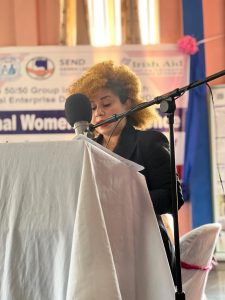
- The GENDER EQUALITY AND WOMEN’S EMPOWERMENT (GEWE) ACT 2022
Despite these promises and the efforts, both nationally and internationally, there are still overwhelming challenges and shortcomings in turning these commitments into reality. Women in Sierra Leone continue to face various challenges, including gender-based violence. An estimated 62 per cent of women age 15–49 report having experienced physical or sexual violence, according to the 2019 Sierra Leone Demographic and Health Survey (SLDHS), inadequate access to education, World Bank data shows that the gap in adult literacy between men and women, is 15.2, larger than the gap of the Sub-Saharan Africa aggregate. Early and forced marriage is another major challenge: Sierra Leone has one of the highest rates of child marriage in the world, with over half of all girls married before the age of 18. Other challenges include inadequate access to healthcare, inadequate sensitization and education on gender and development issues, barriers to economic empowerment, exploitative or hazardous forms of livelihood, cultural biases, and low political participation and under-representation in both the public and private sectors, Despite women making up 51% of the population in Sierra Leone. Under customary law, women in rural Sierra Leone have few safeguards against discrimination and other violations and abuses of human rights. On areas of personal status, marriage, and inheritance, they endure formal and official discrimination under the law, in customs, and in court decisions. The issues highlighted above reveal a dire situation for countless women in Sierra Leone, who are suffering and dying due to a lack of basic rights, extreme abuse, and limited opportunities. It is a reality that women are being denied access to education, Forced and trapped in prostitution and sexual exploitation, facing sexual harassment and rape at the workplace, earning lower wages, and being denied financial resources.
Unfortunately, we see that despite the promises made by international human rights organizations and the Sustainable Development Goals, the situation for women in Sierra Leone remains grim. Regrettably, Sierra Leone ranks 148 out of 162 countries on the Gender Development Index, highlighting the country’s severe gender inequality.
Despite the efforts of past and present governments to close the gender gap in decision-making bodies and to protect women from discrimination, the status quo leaves much to be desired. For instance, the Gender Equality and Women’s Empowerment (GEWE) Act promised to address gender imbalances by increasing the appointment of women to decision-making bodies and providing for the promotion of gender equality in employment and training, gender mainstreaming and budgeting, women’s access to finance, and related matters. However, the Act falls short of its promise and adds to the broken promises.
Contrary to popular belief, the Act does not mandate 30 percent representation in elective and appointive positions. Section 3 (1) of the Act states that ‘In making appointments to cabinet and other government positions, the President may take due consideration of the possibility of appointing women to at least 30%.’ At least 30% of what the Act does not say. Assuming it is the cabinet and other government positions, there is no guarantee that this will be done. The contradiction in the section is astonishing – the President may take due consideration of the possibility of appointing women. The President may consider it but is not bound to do so.
In section 3(2), which deals with appointments to public offices not made by the President, the provisions of the law are much more substantial. It states that ‘at least 30% shall be women.’ This, of course, begs the question – how many appointments within the public service are not made by the President? Perhaps some of the lower ones. Especially since the decision of the Supreme Court in the case of Alhaji Sam Sumana v Attorney-General & Anor (SC 4 of 2015) [2015] SLSC 1203 (09 September 2015), Supreme Executive Authority has been used to ensure that the President makes all appointments to top positions in the public service. Consequently, women will be left with 30% of the jobs in the lower rungs of the public service. In contrast, the top positions will be left to the whims and caprices of whoever is the President for consideration appointment.
Contrary to what was reported in the media, this Act does not provide for 30% of women’s representation in Parliament. Section 2 unnecessarily repeats what is in the Public Elections Act 2022 and says there shall be public elections. It then leaves the issues of elections hanging and moves on to something else. It is not covered under the provisions of section 3, the only section in Part II of the Act.
Section 4 (1) imposes a mandatory requirement on the public and private sectors to have at least 30% of women in employment. Section 4(2) states that out of the 30% employed, 30% must be in ‘decision-making positions at all levels within the organization.’ It doesn’t say that 30% of women should be in decision-making positions, as reported. It is 30% of the 30% employed. So, if an organization has 100 staff, 30 must be women. 30% of those 30 women, namely 9, must be in decision-making positions. In other words, only 9% of women will be in decision-making positions.
Section 5 of the Act states that an ’employer shall ensure remuneration for persons of equal skills, competence, expertise and knowledge without discrimination of any kind.’ Equal pay for equal and skills and competence is too little too late. The New Education Policy for Sierra Leone states that 69.3% of the male population is illiterate, while 80% of the female population is illiterate. There is abundant evidence that, based on years of discrimination, most women are under-skilled and underqualified. In a country where in some parts, parents prefer to send boys instead of girls to school, there was a need for some positive discrimination – affirmative action to ensure that the balance is redressed over the years. Section 27 of the Constitution of Sierra Leone provides for protection from discrimination, including based on sex. This section just entrenches the current bias. In most cases, employers will find it easy to pay men more based on skill, expertise, competence and knowledge.
The provisions on equal training and scholarships, as well as the increase from 12 to 14 weeks of maternity leave, are excellent. Likewise, the section dealing with equal access and the right to credit, financial services, transactions, and products is great in principle. But it has little teeth, though, as all it states is that a government financial institution, including the Bank of Sierra Leone and the Ministry of Finance, shall prescribe procedures and processes for improving access to finance for women. Only time will tell what that means and whether it will be done.
Additionally, the clause falls short of promoting women’s economic empowerment. There are numerous other instances of discrimination against women in our society that the Act does not cover. Even now, some landlords discriminate against women and won’t rent property to them. The Government is not required to allot sufficient funds for women’s empowerment. The removal of discrimination based on marital status, access to healthcare, and reproductive health are other areas that should have been covered.
In a letter to Parliament, we urged them to consider these and other issues. Sadly, they did not, and we now have, in our humble view, a mediocre legislation that will not transform the lives of women as was intended. Successive governments have failed to match their laudable rhetoric toward women’s empowerment with concrete actions. We had hoped that this law would put an end to this. Sadly, this fell short of all expectations.
It must also be noted that Section 41 of the PPRC Act provides that political parties shall comply with the provisions of section 58 of the public elections Act 2022. Section 42 of The PPRC Act also seem to promise at least 30 percent placement for women in executive positions from ward to national level. Whether this legislation will prove to be effective to address the gender gap in political parties is very doubtful given that it does not seem to make it mandatory for political parties to have women as the language use suggests that its discretionary. It provides that a political party may have at least 30% placement for women in executive positions from ward to national level.
- Why the Broken Promises
The promises to empower women in Sierra Leone have not been fully realized due to a severe accountability deficit.
Accountability Deficit
It is no secret that our governance system is plagued by a severe accountability deficit, which I firmly believe is obstructing our country’s socio-economic development and growth. Our leaders and public officials are not held accountable for their actions, and they do not consider accountability as a crucial factor in their decision-making processes. They do not believe that they are accountable to the citizens who give them their power, resulting in the election and appointment of loyalists to key oversight positions. As a result, despite having laws and mechanisms in place to ensure checks and balances and hold public officials accountable, these oversight institutions are often ineffective and weak.
The oversight bodies, established to ensure accountability, have been stripped of their authority, leaving them virtually impotent. For instance, the Judicial and Legal Service Commission failed to check the executive’s decision to suspend the Auditor general after uncovering corruption in the President’s office. Furthermore, the 2021 audit report inexplicably omitted the office of the President, Vice President, and the First Lady, implying that those who stand for what is right are held accountable while those who do wrong are left unaccountable.
Moreover, the constitution’s accountability architecture has inherent flaws, with socio-economic rights being unenforceable. Women, for instance, cannot hold their leaders accountable in court for failing to provide access to health and other socio-economic rights, which leaves leaders in power with little accountability for women’s rights and people’s well-being.
Even Parliament has failed to hold governments accountable for not meeting the needs of citizens. Additionally, customary laws and religion have been used to justify the ill-treatment and harassment of women, leading some women to accept the status quo. For example, Muslim women seeking a divorce are often at the mercy of imams who apply twisted interpretations of Sharia law that favour men over women, leading to women remaining in abusive, violent households or even being forced into polygamous marriages against their will.
The lack of high-quality data on women’s situations further impedes the accountability process, hindering the ability to track progress and provide reliable evidence of women’s lives. Governments are less accountable without reliable data.
However, the accountability deficit is not only a domestic problem but also an international problem. The 2030 Agenda lacks a robust accountability framework, only including a weak voluntary reporting process to monitor compliance with SDGs. This may explain why states and other stakeholders do not dedicate sufficient efforts and resources toward compliance.
With a rubber-stamp oversight bodies, an ineffective parliament, insufficient data, a judiciary that seems subservient to the executive, an oppressive interpretation of Islam by most imams, and a weak accountability framework for SDGs, the prospects for accountability in Sierra Leone appear bleak. Neither our government nor the international community has been able to make accountability a reality.
- Against the broken Promises
As individuals who have the privilege to speak out, we have a responsibility to stand up for those women who cannot. Those women who continue to suffer from marginalization and discrimination. As a mother, sister, and wife, I feel a personal responsibility to advocate for vulnerable women whose lives are threatened by economic deprivation, political exclusion, and domestic violence.
- Call to Action
I can talk all day about the real and challenging obstacles that women face. However, my intention is not to make you feel powerless or hopeless but to emphasize the need for us to fight harder and more passionately than ever before for a more inclusive and just society, not just for ourselves but for generations to come. While the adversities we face as women are many, we can draw inspiration from the quotes of Dr. Martin Luther King Jr., who reminds us that adversity is not a cause for despair but a call to action.
Discriminatory treatment of women and sexual violence against women and girls must end if we want to build a viable, inclusive, and just society. Accountability is long overdue. The status quo guarantees only future backwardness. We all have a part to play in making accountability for women a reality, and we must act now.
- Recommendations
Here are some recommendations for reflecting on and improving accountable practices:
- The ongoing oppression and impunity can be attributed to a deeply entrenched patriarchal system and hypocritical governments that lack the political will to empower women. So let us Use the June 24 election day to hold political parties accountable through our votes. Let’s elect leaders with genuine programs and commitments toward a more just and inclusive democracy. No matter our emotional ties to any party, we must bring their incompetence and betrayal to the fore. This year has to be the year that we hold political parties to account for their failures to transform the lives of women.
- The United Nations Committee on the Elimination of Discrimination against Women (CEDAW) noted that ‘section 27 (4), an entrenched provision inherited from the Constitution of 1961, placed limitations on protection from discrimination with respect to adoption, marriage, divorce, burial and devolution of property on the husband’s death, in effect discriminating against women in those matters, which had been largely determined by customary law under colonial rule.’ Without hesitation, we must call on the government to remove this section from our constitution.
- Civil society should empower and equip citizens to exercise their inherent legitimate rights to hold governments accountable for the use of public funds and demand more transparent and responsive governments.
- Let us require organizations and companies to disclose how they are making measurable progress in including women.
- Let us monitor how well oversight bodies carry out their mandates and exercise their authority.
- Let us scrutinize how public funds are being allocated.
- Let us not hesitate to call out wrongdoing.
- Let us Demand more openness and public consultations.
- Having more conferences like this will also compel authorities to listen and face the problems.
- Let us arm ourselves with reliable, timely data. It’s critical to hold governments accountable, make informed decisions about policies and programs, and monitor their implementation.
- Let us run regular workshops on improving accountable practice.
- Let us demand that the government enacts without delay a provision in the PPRC ACT that would require political parties to collect and publish gender reports relating to their executive members and parliamentary candidates within a time limit. This would enable the public to hold political parties to account for their selection of candidates and promote gender inclusivity.
- Let us demand effective participation of women in accountability initiatives as pathways for authorities to see things from the perspective of women.
- Let us make it an obligation on the part of state departments to report on progress achieved in gender mainstreaming and to be answerable in the event of a failure to meet stated gender equality objectives.
- Let us urge the international community to make robust accountability for the SDGs a priority and embed a strong culture of accountability to realize Goal 5 of the SDGs.
Collectively, these actions will lay the foundation for our accountability journey to have more responsive, inclusive, and accountable governments.
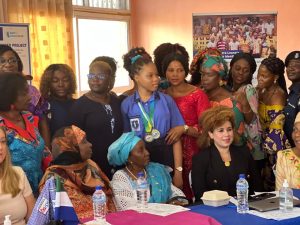
In addition to chronicling the broken promises, difficulties, and possible recommendations, it’s worth noting that our story is also one of resilience, courage, and endurance. Our efforts have been sustained by the tireless work of strong, determined, and principled women who have campaigned against inequality and discrimination against women. Women like Nemata Walker, Aisha Fofanah Ibrahim, Bernadette Lahai, Marcella Samba, Fatou Taqi, Yasmin Jusu Sheriff, Fredline M’Cormack-Hale, Minister Manty Tarawallie, Fatmata Sorie, Nicky Spencer-Coker, and countless others in the Feminist movement. The commitment and passion of the First Lady Fatima Bio and the Mayor of Freetown Yvonne Aki Sawyer have made them a formidable force nor only in Sierra Leone by also internationally. And when we speak of the tenacity and boldness of other women in the political sphere, Dr. Femi Claudius Cole, Nassau Fofanah, Nyamacoro Sarata Sillah and Dr, Sylvia Blyden and many others are changing the narrative by fighting tirelessly to make their voices heard.
It would be remiss of me not to express my heartfelt appreciation and admiration for the mothers and sisters of Sierra Leone, who are the unsung heroines fighting their own battles with quiet yet unwavering determination in the most challenging circumstances.
We must also acknowledge the women of Sierra Leone who fearlessly spoke out against the unfair suspension of Lara Taylor Pearce by the government. While Lara was not reinstated, their efforts have demonstrated a triumphant display of female solidarity, and I firmly believe that more such displays of unity will hold our leaders accountable.
Thank you, and I wish you a successful conference.

